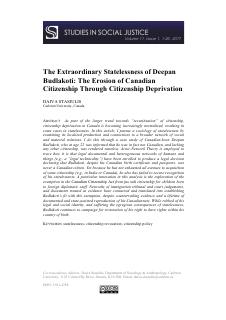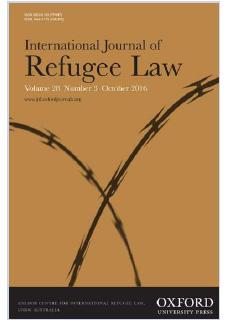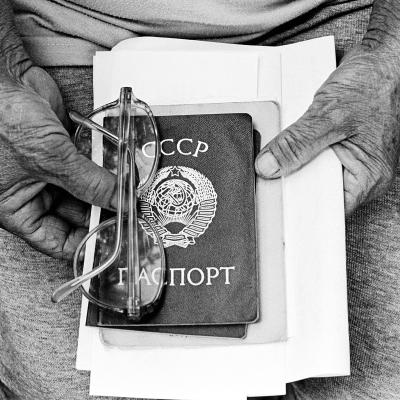“Most of us take our citizenship for granted. From birth we belong to one, or in some cases, two states. This belonging represents a significant part of our identity and enables us to maintain our daily life under the protection of the state. But, imagine if one morning, you suddenly woke up stateless.”
Jawad Fairooz, a former Bahraini Member of Parliament and chair of SALAM DHR
KEY MESSAGES
- Deprivation of nationality refers to any loss, withdrawal or denial of a person’s nationality, that has not been voluntarily requested.
- Deprivation can affect entire communities, as well as individuals, and happens for a wide variety of reasons.
- The impact of nationality deprivation is severe and long-lasting, catalysing other serious human rights violations – especially when it leaves a person stateless.
- International law imposes significant limits on the use of nationality deprivation by states, in particular the prohibition of arbitrary deprivation of nationality, the obligation to prevent statelessness, and the prohibition of discrimination.
- In the 21st century, deprivation of nationality has seen a resurgence as it is instrumentalised by some states in the context of national security and counterterrorism efforts, or as a tool to silence political opponents and human rights defenders.
GLOBAL OVERVIEW OF DEPRIVATION OF NATIONALITY
Deprivation of nationality refers to any loss, withdrawal or denial of someone’s nationality by a state, that has not been voluntarily requested. It can refer to either denying someone their right to acquire nationality, or taking away their nationality if they already possess it. Deprivation of nationality is not limited to individuals, and can affect entire groups and communities. These acts can occur deliberately, but can also happen automatically through operation of the law. Deprivation of nationality can also be referred to as citizenship stripping or denationalisation.
Nationality deprivation happens in a variety of different contexts and for a number of reasons. There have been many cases of mass deprivation of nationality of entire groups, which are most often targeted at ethnic, religious, cultural or racial minorities. In the 20th Century, some examples include the mass denationalisation of Jewish people by Nazi Germany; denationalisation of Kurdish people in Syria and Iraq; denationalisation of black Mauritanians; and deprivation of nationality of the Rohingya in Myanmar. In the 21st century, Dominicans of Haitian descent in the Dominican Republic, and Muslim communities in Assam, India, are two further examples. Typically, a state’s reasons for mass deprivation centre around the desire to exclude a certain group who does not fit in with the notion of national identity propagated by those in power. It can also be used to scapegoat minorities, who can be blamed for economic and other failures. The removal of citizenship renders these groups stateless or at risk of statelessness, and can be combined with forced expulsion from the state.
The majority of nationality laws worldwide also provide for the possibility of deprivation of nationality from individuals in certain circumstances. The most common ground for deprivation of nationality is where it has been fraudulently obtained. Other contexts that may trigger deprivation include acquisition of another nationality (in order to avoid dual citizenship); long-term absence from the country; and various acts seen as demonstrating either disloyalty to the state or a shift of allegiance to another state.
Governments have also instrumentalised nationality deprivation as a tool to silence political opponents, human rights defenders and journalists, among others. This practice has been on the rise in contexts of growing authoritarianism, where it is used as a deliberate act to maintain existing power balances, further political agendas or to close civil society space. Several hundred human rights defenders in Bahrain and in Nicaragua are among those affected by this practice.
DEPRIVATION OF NATIONALITY AS A NATIONAL SECURITY MEASURE
Following the terror attacks of 9/11 in the United States, the international ‘war on terror’ has seen nationality deprivation be instrumentalised as a counterterrorism measure. Since 2000, an alarming one in five countries globally have introduced or expanded citizenship deprivation powers, with Europe at the centre of this trend. This measure has been justified on the grounds of protecting national security, despite a lack of evidence to suggest that this is an effective counterterrorism measure, and security experts noting that it may even contribute to increasing (inter)national insecurity. In many cases, these powers are likely to have a discriminatory impact, disproportionately affecting racial and religious minorities, due to the exclusive targeting of naturalised and/or dual citizens. Individuals who are suspected of involvement with terrorist organisation are often deprived of their nationality while outside the country, limiting their ability to appeal and in some instances rendered stateless. This leaves them without the protection of the state in areas where they are less likely to face prosecution for any actions they have taken and more likely to be (further) radicalised.
INTERNATIONAL LAW LIMITS ON THE USE OF NATIONALITY DEPRIVATION
International law imposes significant limits on the use of nationality deprivation by states. The central norms are the prohibition of arbitrary deprivation of nationality, the obligation to prevent statelessness, and the prohibition of discrimination on certain protected grounds and between nationals, which are enshrined in core international human rights treaties. Article 15 of the UDHR states that no one shall be arbitrarily of their right to nationality – a norm that is repeated in a number of regional human rights treaties. Deprivation of nationality is considered arbitrary, and a violation of international law, if it is discriminatory in intent or effect, or if it does not meet the following cumulative conditions: that it is undertaken in pursuit of a legitimate purpose, provided for by law, necessary, proportionate and in accordance with procedural safeguards. The substance of this norm has been further fleshed out in several resolutions adopted by the UN Human Rights Council and associated UN Secretary General Reports. The Principles on Deprivation of Nationality as a National Security Measure synthesise how the existing legal framework applies in cases of deprivation of nationality in the national security or counter-terrorism context.
The prohibition of arbitrary deprivation of nationality is further strengthened and given content by the duty of states to avoid statelessness. The 1961 Convention on the Reduction of Statelessness explicitly provides that loss or deprivation of nationality should not lead to statelessness and also prohibits deprivation of nationality on certain discriminatory grounds. UNHCR has issued Guidelines for the interpretation and application of the 1961 Convention standards regarding loss and deprivation of nationality.
THE IMPACT OF DEPRIVATION OF NATIONALITY
Deprivation of nationality has an acute impact on the individual. Loss of nationality results in the loss of the rights associated with nationality, including the right to reside in the country, the right to work, and a wide range of other socioeconomic and civil and political rights. Those who have had their nationality deprived may be removed to a country of second nationality (if they possess one), or in cases where the individual is rendered stateless, they may be left in limbo.
Mass deprivation of nationality results in disenfranchisement and exclusion of entire communities, and expedites further human rights violations, including forced displacement, persecution, systematic targeting, and even genocide. It has destabilised societies, has undermined economic progress, escalated conflict and caused immeasurable pain and suffering. Rising authoritarianism, growth of the security state, and increasing populism, xenophobia and racism are all factors that are placing citizenship under threat in ways not seen for generations.
Deprivation of nationality also speaks to the weaponization of nationality – whereby nationality is treated not as a human right that everyone is entitled to, but as a privilege that is contingent upon behaviour or identity. This weaponisation of nationality erodes the right to nationality as a basic human right, and threatens the democratic, rules-based order premised on individual rights and a commitment to global peace that was created post-WWII. The growing (mis)use of citizenship stripping powers to target some, undermines the sanctity of citizenship for all.
[Last updated: December 2023]
Cover image by Greg Constantine
Further reading
Voices & Experiences
-
Arbitrary revocation of nationality in Bahrain: A tool of oppression
![Bahrain]()
Arbitrary revocation of nationality in Bahrain: A tool of oppression
![Bahrain]()
“Various UN human rights mechanisms have repeatedly called on Bahrain to take specific steps to amend its counter-terrorism legislation, and to ensure that citizenship is not revoked except in accordance with international standards and under independent judicial review.”
Michelle Bachelet
Former UN High Commissioner for Human Rights
The case of Bahrain represents a powerful example of how legislation introduced under the pretext of national security and counterterrorism, can be weaponised against political opponents, dissidents and human rights defenders, leading to arbitrary deprivation of their citizenship. In 2011, during the height of the Arab Spring in the Middle East, protests erupted in the Kingdom of Bahrain. Deeming these demonstrations to be a national security threat, the Government reacted with a set of regressive reforms. It progressively expanded the grounds for nationality deprivation and consolidated the power to deprive Bahrainis of nationality at the behest of the Minister of Interior.
Voice from https://files.institutesi.org/Arbitrary_Revocation_of_Nationality_in_Bahrain.pdf
-
Nationality Deprivation in Assam
![Assam]()
Nationality Deprivation in Assam
![Assam]()
“The experience from the Indian State of Assam is also relevant because the Indian Government may implement the ‘Assam Model’ across India, resulting in a disproportionate rise of stateless persons globally, at a time when the United Nations is actively pursuing the reduction of statelessness across the globe.”
Talha Abdul Rahman
Supreme Court of India
There is a crisis of statelessness in Assam, India. In August 2019, 1.9 million people were deemed ‘non-citizens’ and deprived of their nationality following the arbitrary and highly discriminatory National Register of Citizens (NRC) which sought to remove the names of alleged undocumented migrants from the voters list and update NRC, predominantly targeting Muslims and Hindus of Bengali ethnicity.
Voice from https://heinonline.org/HOL/LandingPage?handle=hein.journals/stlenctzr2&div=11&id=&page=
-
The expansion of citizenship stripping powers in the UK
![uk 2]()
The expansion of citizenship stripping powers in the UK
![uk 2]()
“The Supreme Court affords a concerning level of deference to the executive on matters of national security and has in essence permitted a nationality deprivation order to remain unchallenged indefinitely, with the (former) British citizen impacted by the decision left in cruel, inhuman and degrading conditions and with no access to justice.”
Amal de Chickera
Co-Director of the Institute on Statelessness and Inclusion
There has been a remarkable increase in the scope and use of citizenship deprivation powers in the UK in the 21st century. The powers were used for the first time in 33 years in 2006. Since then, it is estimated that 175 citizens have been stripped of their nationality on national security grounds. Legislative developments allowing for easier deprivation of citizenship have often been implemented in the aftermath of events such as terror attacks (e.g. 9/11 and the 2005 London bombing) or following highly publicised cases of individuals linked to terrorism (such as Abu Hamza and Al-Jedda). This suggests a symbolic purpose to this legislation rather than a basis in purely security concerns. The cumulative effect of successive amendments has been to expand powers, increase the scope of who can be targeted, bestow more discretion upon the Home Secretary in the use of nationality deprivation, weaken judicial oversight and erode procedural protections.
Voices from https://files.institutesi.org/Instrumentalising_Citizenship_Global_Trends_Report.pdf
Latest Resources: Nationality deprivation
-

The Extraordinary Statelessness of Deepan Budlakoti: The Erosion of Canadian Citizenship Through Citizenship Deprivation
Type of Resource: Academic publication
Theme: Nationality Deprivation
Region: Americas
View -

Video: World Conference on Statelessness 2024 session: Addressing Statelessness Through Un Mechanisms
Type of Resource: Video/ Webinar
Theme: Human Rights Enjoyment by Stateless People
Region: Global / Other
View -

Deprivation of Nationality, ‘The Country of His Nationality’ in Article 1A(2) of the Refugee Convention, and Non-Recognition in International Law
Type of Resource: Academic publication
Theme: Nationality Deprivation
Region: Global / Other
View



